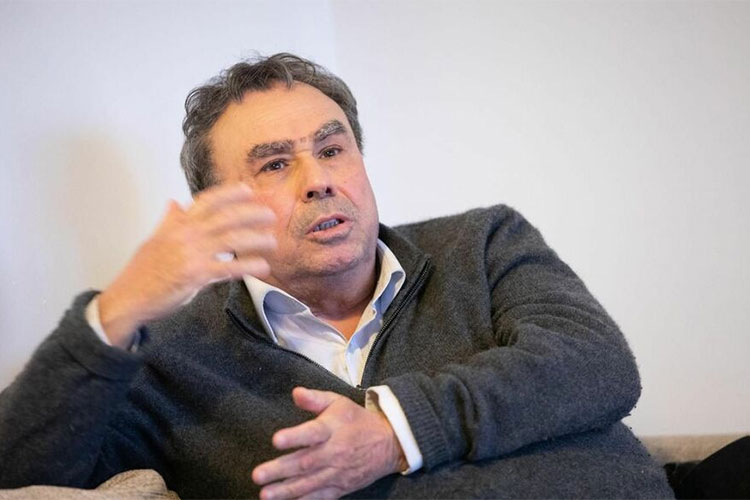Benjamin Stora Admits the Difficulty of Achieving the Reconciliation of Memory

The French historian, Benjamin Stora, author of the report on the memory of French colonialism in Algeria, alluded to the difficulty of achieving consensus between Algeria and Paris regarding the memory file, but, on the other hand, he expressed his hope that this file would not be left to impede other outstanding interests between the two countries.
“There are many challenges between Algeria and France, but there must be consensus on other matters, not necessarily about the memory file. There are many challenges and stakes at the global level, and in all cases, cooperation between Algeria and Paris will continue, in oil and gas, on issues of migration and security, especially in Africa. Cooperation between the two countries is inevitable, but the memory file should not be an obstacle in the way of this cooperation”, Stora said.
The son of Constantine, by birth, was talking about the massacres of May 8, 1945, in an interview with France 24, and about the impact of the memory file on Algerian-French relations, which, as is well known, caused the failure to achieve the rapprochement that the French President, Emmanuel Macron, was looking for due to the limited steps taken by the latter in the memory issue.
The historian specializing in the history of French colonialism in Algeria acknowledged the existence of a gap in dealing with the memory file between Algeria and Paris: “There are different points of view from both sides regarding memory. There are not even small steps from both sides that pave the way for the reconciliation of memory, because there are obstacles that prevent that”.
Stora talked about the efforts made by Macron during his first presidential term to break the knot of his country’s colonial past in Algeria; “during Macron’s rule, some progress was achieved, not what happened sixty years ago, the recognition of the responsibility for the liquidation of the fighter Maurice Audin (supporter of the Algerian revolution), Ali Boumendjel (fighter and lawyer of the National Liberation Front) and the condemnation of the crimes against Algerians in the protests of October 17, 1961, and the opening of the archive… This path that Macron has launched must not stop”.
“The delay in this regard must be remedied in coordination with Algeria, especially since there are some recommendations contained in the report that I completed at the request of the French President, such as the establishment of a museum of Algerian and French history in the city of Montpellier, in addition to the file related to nuclear tests, which remains a heavy file”.
Regarding the treatment of French politicians and intellectuals about the events of May 8, 1945, Stora said that few of them sympathized with the Algerians, led by the writer Albert Camus, who criticized the situation of the Algerians in colonial France as second-class citizens compared to the French, and perhaps Camus, the speaker says, is the only French intellectual who criticized French colonialism because of those tragic events, which led to the complexity of the occupation situation after that.
On the official level, Stora referred to the statement made by the French ambassador to Algeria, Hubert Colin de Verdière, from Setif in 2005, about these events, which he described as “massacres”, and that statements were made under the directives of the French President, Jacques Chirac at the time, in addition to that the speech of the French Ambassador Bernard Bajolet in 2008 under the leadership of Nicolas Sarkozy, who “confessed that there were massacres in Guelma and they were terrible, and then turned to where the Algerians were thrown by the French army in the caves”.
The French historian described the events of May 8, 1945, as “the great ideological transformation in the Algerian national movement’s struggle for independence, which led it to a military confrontation with the occupation army two years later, about the establishment of an armed arm of the Algerian People’s Party, in what was known as the “Special Organization”, which was the nucleus that blew up the liberation revolution in November 1954.







